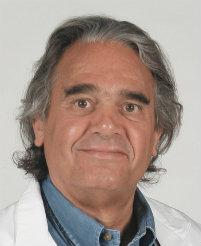event
"Causes and Consequences of microRNA Dysregulation in Cancer" - Special Seminar
Primary tabs
Special seminar jointly sponsored by Integrated Cancer Research Center and School of Biology
Carlo Croce, MD
Professor & Chair
Department of Molecular Virology, Immunology & Medical Genetics
Ohio State University Medical Center
Since the discovery of miR-15a and miR-16-1 deletions in CLL15, many laboratories around the world have shown miRNA dysregulation in all tumors studied, including the most common, such as lung, breast, prostate and gastrointestinal cancers. Such dysregulation, like the dysregulation of oncogenes and tumor suppressor genes, can be caused by multiple mechanisms, such as deletion, amplification, mutation, transcriptional dysregulation and epigenetic changes.
As miRNAs have multiple targets, their function in tumorigenesis could be due to their regulation of a few specific targets, possibly even one, or many targets. A future challenge will be to identify all of the targets of the miRNAs involved in cancer and establish their contribution to malignant transformation. An additional challenge will be the identification of all of the miRNAs that are dysregulated by pathways that are consistently dysregulated in various types of human cancers. This point is of particular importance, as instead of focusing on specific alterations in protein-coding oncogenes or tumour suppressor genes — which may be difficult to treat — we could focus on their downstream miRNA targets. If these miRNA targets are crucial for the expression of the malignant phenotype and the cancer cells depend on their dysregulation for proliferation and survival, we can expect that the use of miRNAs or anti-miRNAs will result in tumor regression. Genomic analyses for alteration in miRNA genes or for copy number alterations in various human tumors by deep sequencing is in progress but has not been completed. These studies could provide additional information concerning the involvements of miRNAs in cancer and in many other diseases.
Over the past few years, we have observed a shift from conventional chemotherapy to targeted therapies, and miRNAs and anti-miRNAs will contribute extensively to the latter.
Dr. Croce, a member of the National Academy of Sciences in the US and the Accademia Nazionale delle Scienze detta deiXL in Italy, has received almost every significant award for cancer research that one can earn. He was awarded two Outstanding Investigator awards from the National Cancer Institute, the Richard and Hinda Rosenthal Foundation Award and the G.H.A. Clowes Memorial Award from the American Association for Cancer Research, the John Scott Award, the Robert J. and Claire Pasarow Foundation Cancer Award, the GM Cancer Research Foundation - Charles S. Mott Prize, the Scanno Prize for Medicine, the AACR-Pezcoller Award, the Raymond Bourgine Award and Gold Medal of Paris and President of the Republic Prize, the iwCLL Binet-Rai-Medal for Outstanding Contribution to CLL Research, the Henry M. Stratton Medal from the American Society of Hematology, the Albert Szent-Györgyi Prize for Progress in Cancer Research, the 2008 Leopold Griffuel Prize awarded by the French Association for Cancer Research, The Ernst W. Bertner Memorial Award, The University of Texas M. D. Anderson Cancer Center and most recently, an Elected Member of The American Academy of Arts and Sciences. He is principal investigator on seven federal research grants and has more than 875 peer-reviewed, published research papers.
About the Integrated Cancer Research Center (ICRC)
Georgia Tech has been a leader in the development of collaborative approaches to both cancer diagnostics and therapeutics. The mission of the Integrated Cancer
Research Center (ICRC) is to facilitate integration of the diversity of technological, computational, scientific and medical expertise at Georgia Tech and partner institutions in a coordinated effort to develop improved cancer diagnostics and therapeutics.
Status
- Workflow status: Published
- Created by: Colly Mitchell
- Created: 11/12/2012
- Modified By: Fletcher Moore
- Modified: 10/07/2016
Categories

